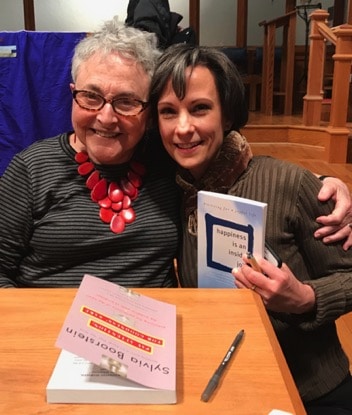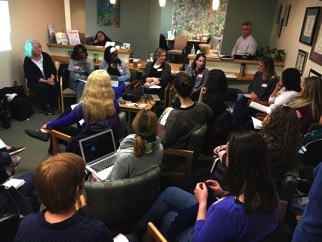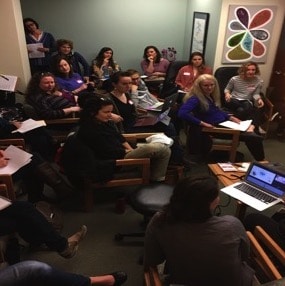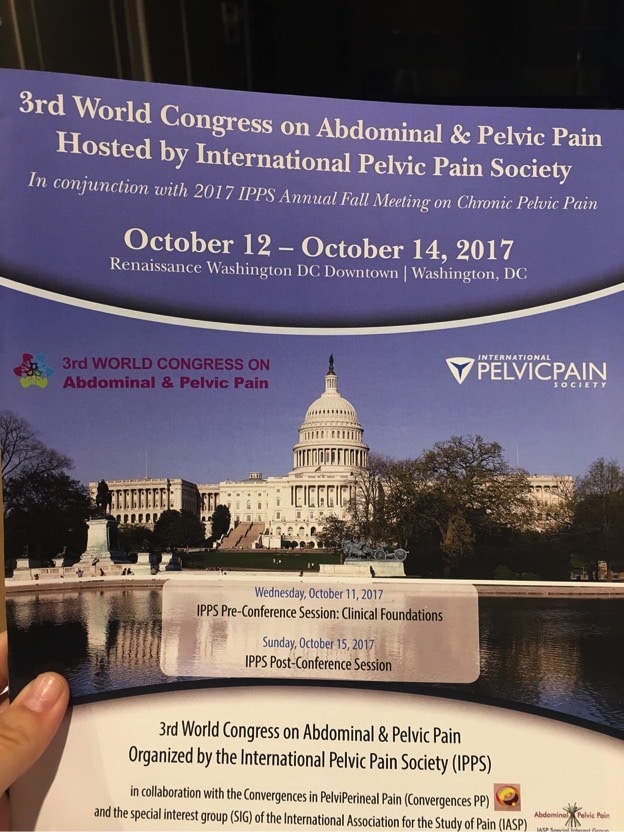Sylvia Boorstein, PhD, and Miriam Graham, DPT (December 2017) with Dr. Boorstein’s books Happiness is an Inside Job and Pay Attention for Goodness Sake.
Current neuroscience states 8 minutes of meditation a day will change brain structure positively!
Meditation is about choosing an object on which to REST your mind. The mind frequently wanders to the past or to the future. GENTLY bring your mind back to REST on the chosen object. Typically, you will go through several cycles back and forth, starting and restarting in any one session. That IS meditation, the exercise that brings about resilience. Just like exercise for your body, meditation requires effort and repetition.
The phrases used in meditation help gather and direct your attention. You can sit, stand (or walk slowly if it is more comfortable to be on the move). If possible, close your eyes while sitting or standing, this will help you bring your attention inward. Comfortably support your spine. It is helpful to have a timer to set for 2, 4, 5 or 8 minutes. Try this mindfulness phrase to exercise being in the present for 2 minutes:
Breathe in: May I be present in this moment.
Breathe out: May I meet it as a friend
Once you feel comfortable with 2 minutes, challenge yourself to 4 minutes. Remember the exercise is to bring yourself back to the phrase and breathing. You ARE doing it RIGHT if you have to redirect yourself back from wandering onto your grocery list or starting to fall asleep… That is the exercise!
Last December I attended a 6-hour meditation retreat lead by Sylvia Boorstein and Sharon Salzberg. Both women were engaging speakers and I appreciated how simply they presented “Metta” or “Loving Kindness” meditation. Metta is a Pali word that is translated as “loving kindness,” fierce compassion or freedom of heart. Next installment we will introduce a cycle of phrases to practice a Metta Meditation. Until then, enjoy the respite of taking just a few minutes to withdraw and rejuvenate in this moment.
Written by Miriam Graham, PT, DPT, MBA




